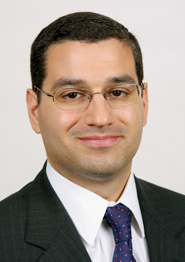Should high-frequency traders be required to assume market maker obligations?

In the wake of the "flash crash," and charges of desertion by liquidity providers, the Securities and Exchange Commission is mulling the imposition of affirmative and negative market maker obligations on HFTs. The regulator is concerned that the group, which provides between 40 percent and 50 percent of all liquidity in the market, shirked its duties to support stock prices during the May 6 downdraft, and should be asked to do more.
That could mean forcing HFTs–essentially proprietary traders without customers–to register as market makers with the exchanges where they hold membership. A handful already do, but most don’t. For their part, the exchanges are largely ambivalent. They recognize the benefits to their markets, but are hesitant to speak out in favor of a draft.
The New York Stock Exchange, operated by NYSE Euronext, is the exchange most committed to market maker support, as seen by its designated market maker and supplemental liquidity provider programs. Still, NYSE Euronext is opposed to forcing HFTs to assume the obligations of market makers.
“If someone is just a very large part of the market or doing a lot of trading, but is not necessarily getting any of the benefits of a market maker, then they should not be required to register as a market maker,” said Joe Mecane, executive vice president and chief administrative officer for U.S. markets at NYSE Euronext.
Both Direct Edge, which does not currently have market makers, and BATS also oppose mandatory registration. “Proprietary trading firms should not be forced to register as market makers,” Bryan Harkins, the exchange’s head of sales and strategy, said. “While Direct Edge supports the standardization of SRO market-maker obligations beyond today’s stub quotes, any firm’s decision to assume those obligations–whether high frequency or low frequency–should be voluntary.”
With 170 market makers, Nasdaq has the largest stable among all the exchanges. It, and every other exchange, recently proposed tightening requirements on registered market makers. But Nasdaq is not supportive of pushing registration on HFTs. “We operate our markets in an open access, fair and transparent manner with our benefits and features available to all members,” Nasdaq said in a statement. “If HFT or other firms choose to accept market-maker benefits, they then also accept market-maker responsibilities.”
Nasdaq chief executive Bob Greifeld, in fact, believes it would be a challenge to create rule-making to force market maker obligations on HFTs. “It would be very difficult to properly define the responsibilities and correspondent privileges you would give to market participants,” Greifeld said on Friday during the exchange operator’s quarterly conference call.
The executive also warned there is a danger in imbuing certain market participants with benefits that others lack. “As we know from the past, where there are privileges, bad things can happen to markets,” he said. In the 1990s and the first decade of this century, both Nasdaq market makers and NYSE specialists were charged with abusing their special positions for personal gain.
Whatever their organizations’ respective positions, the CEOs of the two largest exchange operators differ on the likelihood of the SEC taking any action soon. Greifeld told analysts he doesn’t believe the SEC will move on the issue in the next year. “You have to realize the Commission has a fair bit of work to do with Dodd-Frank,” he told analysts.
By contrast, NYSE Euronext chief executive Duncan Niederauer says rulemaking is imminent. Speaking in Washington at a conference sponsored by the National Association of Corporate Directors, Niederauer said he expects new rules by January. The flash crash made plain that the structure of the market is too vulnerable and that some firms are reaping benefits while not contributing to market stability, Niederauer said.
–Additional reporting by James Ramage





